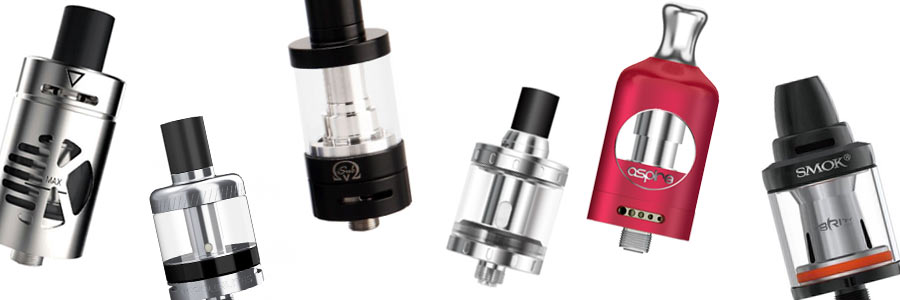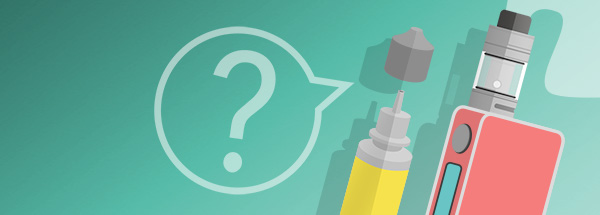TRPR/TPD UK Regulations Explained
On the 20th of May 2017, the Tobacco & Related Products Regulations (TRPR) went into effect in the UK. The TRPR is the UK’s interpretation of the revised Tobacco Product Directive (TPD) which was introduced by the European Commission two years ago.
These regulations are a catch-all for the tobacco industry, but have been updated to include vaping products. From the end of May all vaping products which contain (or could contain) nicotine are subject to the regulations. It is because of these regulations that you may have noticed some gradual changes on the vaping market within the last year, including 2ml tank sizes and an increase in 10ml eliquid bottles.
The regulations were actually put into place on May 20, 2016; but there has been a cross-over period where the older ‘non-compliant’ products could be sold through - but this ends on May 19, 2017. After this date all vaping products will have to be compliant with TRPR in order to be bought and sold in the EU.
Summary Of The UK TRPR Regulations
![]()
The official UK government TRPR document lists all the regulations in detail, but the simplified version states that;
- Vape tanks will be no larger than 2ml
- eLiquid bottle sizes will be no larger than 10ml
- The maximum Nicotine strength available will be 20mg/ml (2%)
- Nicotine containing products must carry health warnings (similar to those on tobacco products)
- There must be a leak-proof refilling mechanism
- Emissions testing and provision of toxicological data by the manufacturers
- Restrictions on advertising
Basically, in order for vaping products to be sold in the UK after May the 20th, these products have to be what’s referred to as ‘notified’, where manufacturers have to submit particular pieces of information about their products, such as packaging, ingredients, toxicology reports, and emissions tests.
Who Will Enforce The Regulations?
The organisation that deals with this notification system in the UK is called the MHRA (Medicines and Healthcare products Regulatory Agency), and they basically just want to ensure that eLiquid products don’t contain any harmful properties, ensuring the user receives a quality product that is safe to vape.
The regulations are highly controversial within the industry, for a number of varying reasons. Although testing and packaging are reasonable things, other parts of the regulations are seen by many to be completely unnecessary.
Firstly, advertising will be heavily restricted, which means it’s much more difficult for people to access information that could be beneficial to them and their families. It seems strange that the government would restrict such a thing that could potentially help so many people, as well as the heavily under-funded NHS (every smoker who quits saves the NHS an average of £74,000).
Due to the cost of proper testing and so on, getting even a single product ‘notified’ isn’t cheap, and due to this, a vast number of the current eLiquid manufacturers have had to rethink their product range, and many have condensed down considerably.
While this does narrow the market, it also does away with any potential “Cowboy” juice makers, who were not mixing their e-liquids in a sterile or hygienic environment. In turn this should give the consumer even greater confidence in the products available.
How Will The Regulations Affect Vapers?
While some of the rules are a positive step towards regulation, other aspects of the TRPR will affect a vast number of vapers. The 2ml maximum tank size that’s being introduced has been a somewhat abrasive point for many people, as up until this point tanks have ranged from small capacities like 2ml, all the way up to 10ml and beyond (within reason).

Some vape devices use higher battery power than others, and users of these Sub Ohm devices do need to refill their tank fairly frequently, more so compared to a regular user of mouth-to-lung style devices. Having a 2ml capacity tank and Sub Ohm vaping on it will very likely mean it will have to be refilled several times a day if used often.
It just shows how badly thought out some of the regulations are, and how little knowledge the writers had of the products they were regulating. One of the regulations concerns a ‘leak free refilling mechanism’, presumably to protect users from spilling eliquid on their hands. Yet by limiting the tank size, vapers are actually force to refill their tanks more frequently increasing the risk of spillage.
Another aspect to the regulations that will force vapers to change their habits is the maximum eLiquid bottle size they’ll be able to purchase. In the past, Vapers have been able to purchase large quantities (100ml, 120ml, 180ml) of eLiquid, saving on time, money, and postage cost. After May, only individual 10ml bottles will be available in shops, which many vapers seeing as being a pointless exercise that creates extra and unnecessary waste. Child resistant caps are standard practice for toxic household cleaners and bleach, and as the same is used for eLiquids, it seems that the bottle size should be irrelevant.
However you will still be able to purchase of quantities of 30ml, 60ml, and 120ml. It will just be in 10ml form. So a 120ml bottle equivalent will be divided into twelve individual 10ml bottles, in a pack. A three pack will equal 30ml, a six pack will equal 60ml, and so on.
These individual 10ml bottles also form part of the Leak-proof mechanism that the regulations require. Most glass eLiquid bottles have a pipette that’s used to transfer eLiquid from the bottle to the tank, but this isn’t always the cleanest, safest, or most hygienic method of doing it. The 10ml bottles are designed in such a way to eliminate leaks and spills, and keep the eLiquid as fresh as possible.
Having stricter manufacturing regulations means that the quality of products on the market can be trusted even further, and those smokers looking to make the switch will have the assurance that the eLiquids and devices they will use are as safe as possible.
There is a genuine concern about the maximum nicotine strength being imposed. Yes it is true that the majority of vapers are using nic strengths considerably below 20mg/ml, however this only gives part of the picture. A large proportion of smokers use 24mg/ml or higher when they first make the switch to vaping, as they find that lower strengths do not satisfy their cravings to start with. Without these higher strength e-liquids, we are risking the effective conversion of many heavy smokers who would like to turn to vaping. There is also a significant number of vapers who do still use 24mg/ml or higher liquids on a daily basis. This group in particular are scared that they may end up going back to tobacco if they cannot get the nicotineo hit they need from vaping.
What Does The Industry Think About The Regulations
So all in all, things have changed for good within the vaping world, whether we like them or not. Some of these rules are a positive step towards proper regulation, whereas others can be seen to be of ill-advised logic and reasoning. The vaping industry is generally behind the regulations as we all want to ensure that the products on the market are the safest and most effective they can be, but we will continue to work with the appropriate bodies in order to improve on the areas where the regulations are not helpful.
For more information on TRPR / TPD, or to speak to us about anything at all, please feel free to get in contact with our team.
How To Guides & Useful Information


